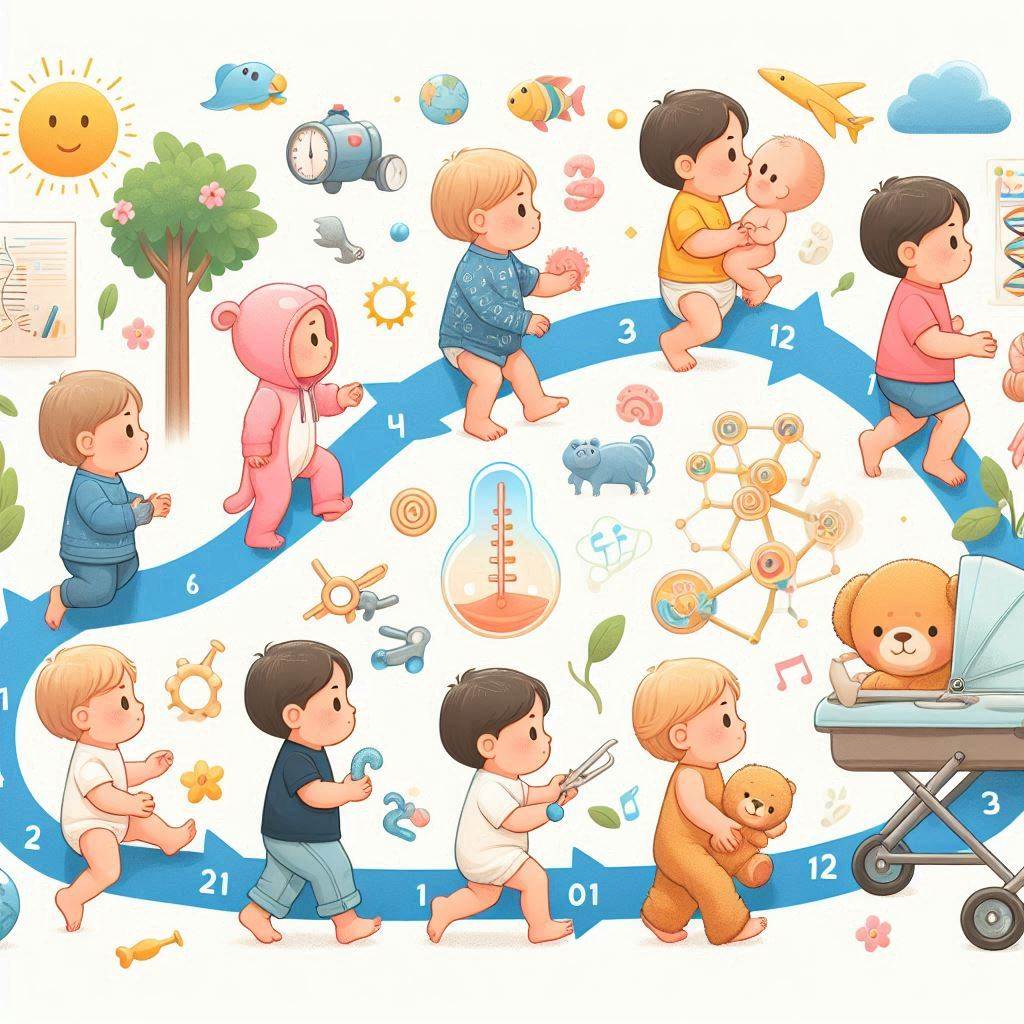The journey of a thousand miles begins with a single step ~ Lao Tzu
Human development is a fascinating and complex process that encompasses physical, cognitive, emotional, and social growth. Understanding the stages of development can help us appreciate the milestones and challenges we encounter throughout life. This article explores the key stages of human development and their significance.
Infancy (0-2 years)

Infancy is a period of rapid growth and development. During this stage, infants develop basic motor skills, sensory abilities, and emotional bonds with caregivers. Key milestones include:
1. Physical Growth: Infants grow quickly, doubling their birth weight by six months and tripling it by their first birthday. They develop motor skills like crawling, standing, and eventually walking.
2. Cognitive Development: Infants begin to explore their surroundings, recognize familiar faces, and respond to stimuli. They start developing memory and problem-solving skills.
3. Emotional Bonding: Attachment to caregivers is crucial. Secure attachment provides a foundation for future emotional and social development.
Early Childhood (2-6 years)

Early childhood is characterized by continued growth and the development of language, social skills, and independence. Key milestones include:
1. Language Acquisition: Children rapidly expand their vocabulary and begin forming sentences. Communication skills are crucial for expressing needs and interacting with others.
2. Social Interaction: Play becomes an important part of social development. Children learn to share, cooperate, and develop friendships.
3. Cognitive Skills: Early childhood is a time of curiosity and learning. Children develop problem-solving skills, imagination, and basic reasoning abilities.
Middle Childhood (6-12 years)

During middle childhood, children develop a sense of self and begin to understand their place in the world. Key milestones include:
1. Academic Skills: School plays a significant role in cognitive development. Children learn reading, writing, math, and critical thinking skills.
2. Social Relationships: Peer relationships become increasingly important. Children learn about teamwork, empathy, and social norms.
3. Self-Concept: Children start developing a sense of identity and self-esteem based on their abilities and feedback from others.
Adolescence (12-18 years)

Adolescence is a period of significant physical, emotional, and social changes. Key milestones include:
1. Physical Maturity: Adolescents undergo puberty, resulting in physical changes and increased interest in body image and sexuality.
2. Emotional Development: Adolescents experience heightened emotions and begin forming their own values and beliefs. Identity exploration is central during this stage.
3. Social Independence: Peer influence becomes strong, and adolescents seek greater independence from parents. Friendships and romantic relationships play a crucial role.
Adulthood (18+ years)

Adulthood is marked by the pursuit of personal and professional goals, forming long-term relationships, and contributing to society. Key milestones include:
1. Career Development: Adults establish careers, pursue higher education, and seek job satisfaction and financial stability.
2. Relationship Building: Forming long-term partnerships, marriage, and starting a family are common during this stage. Maintaining friendships and social networks is also important.
3. Personal Fulfillment: Adulthood is a time for personal growth, self-actualization, and finding meaning in life. Adults often reflect on their achievements and set new goals.
Conclusion
Human development is a lifelong journey that encompasses physical, cognitive, emotional, and social growth. Each stage of development presents unique challenges and opportunities, shaping who we are and how we interact with the world. By understanding these stages, we can better support ourselves and others on the path to personal fulfillment and well-being.






